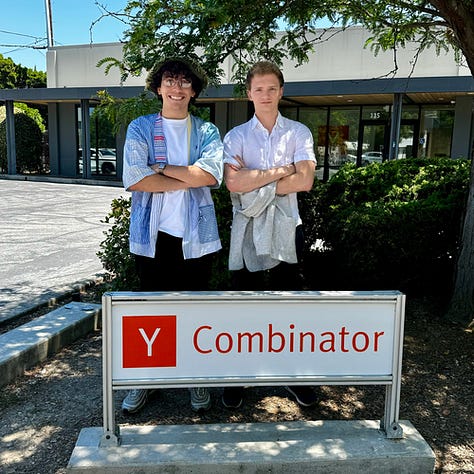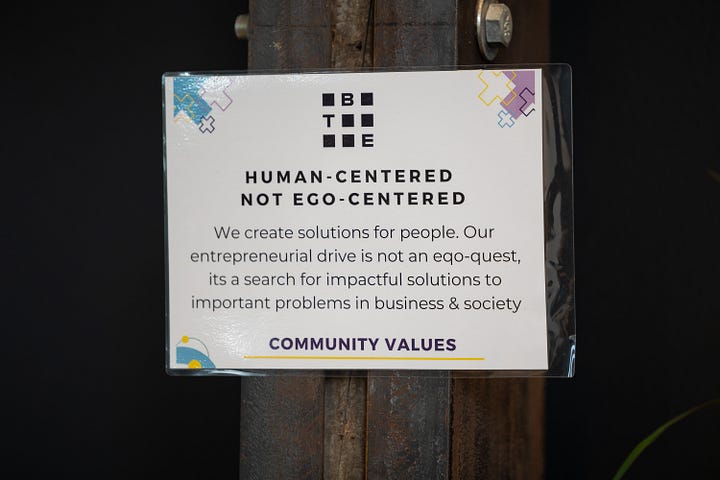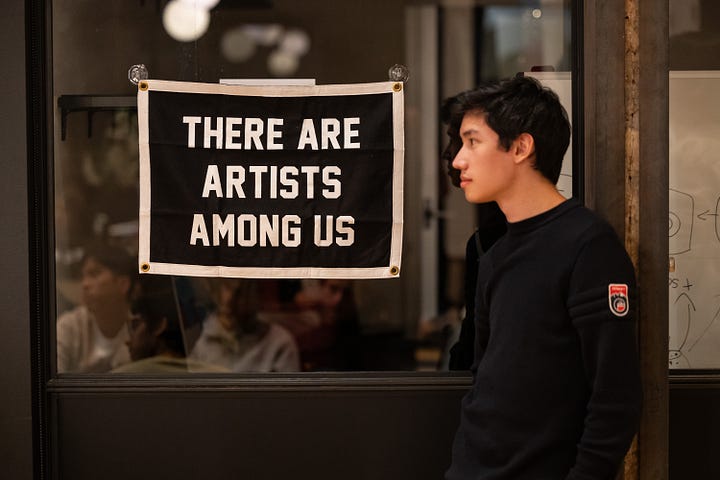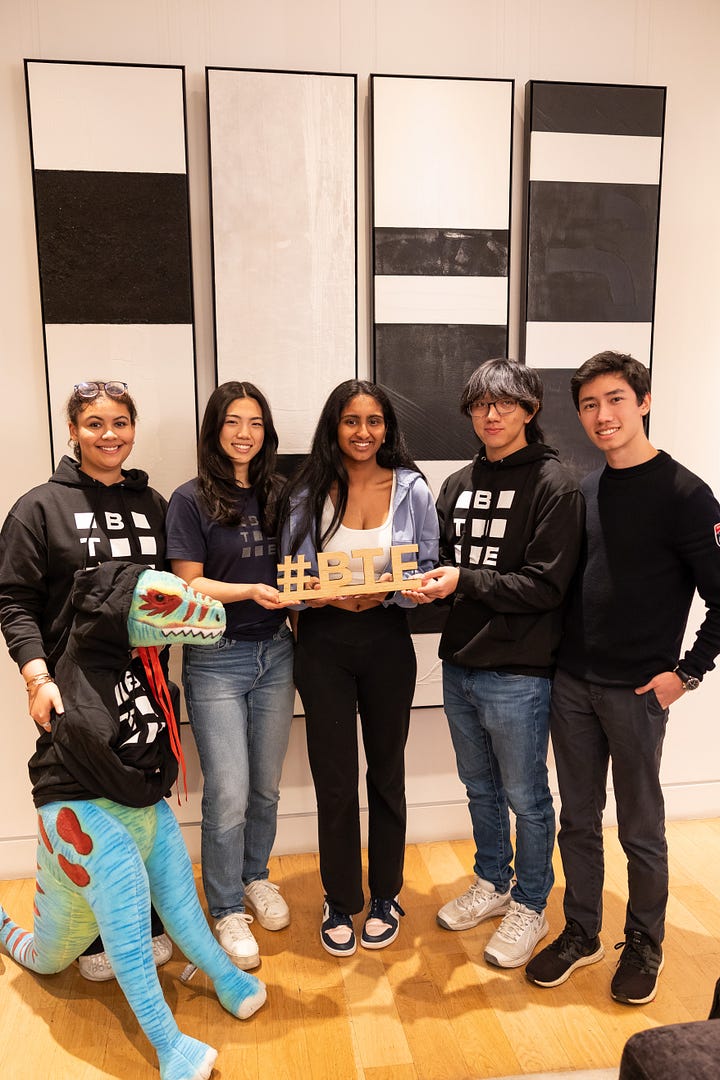The Silicon Valley Myth Is Crumbling—And That’s a Good Thing
I teach Entrepreneurship and it's not a silver bullet

“Move fast and break things.” While this phrase originates from the early days at Facebook, it has come to encapsulate an ethos of entrepreneurship that is both pervasive and flawed. Over the past several weeks, we have witnessed this Silicon Valley approach seep into government at the highest levels—sending shockwaves from Canada to Gaza. We see it most vividly in Elon Musk’s near-mythic power: while stacking achievements in the private sector from PayPal to Tesla to SpaceX—his approach to government is more reckless than revolutionary. From abruptly shutting down USAID to boldly acquiring sensitive US Treasury data, it's not clear if he’s destroying or repairing. The U.S. government isn’t a startup, and Silicon Valley-style entrepreneurship isn’t the answer. Real health, security, and lives are at stake. True entrepreneurship is about building, not breaking.
The Entrepreneurial Boom
Entrepreneurship’s popularity is undeniable. The number of new businesses launched annually now nears five million, and applications to accelerators like Y Combinator have more than doubled in recent years. Universities are responding in kind: The Wharton School opened a 68,000-square-foot space dedicated to student entrepreneurship, meanwhile K-12 programs have incorporated startup skills into curricula.



Beyond formal education, the broader cultural fascination with entrepreneurship is undeniable. Shark Tank, entering its sixteenth season, fuels at-home visions of “making it big.” Podcasts like How I Built This attract millions of monthly listeners, and social media brims with influencers—from Tim Ferriss to Erin on Demand—who champion hustle culture. Whether or not people start businesses themselves, the allure of entrepreneurship remains inescapable and irresistible.
Idolizing the “Lone Genius”
Prominent entrepreneurs like Musk, Zuckerberg, and Bezos are celebrated as the ultimate self-made men—the Ayn Rand ideal of individual achievement. In my own classroom, Musk’s name comes up first whenever I ask students for an example of an entrepreneur. His accomplishments are impressive, but his outsized glorification can obscure how entrepreneurship is deeply collaborative and interdependent.
When this hyper-individualist lens is taken to an extreme, it obscures the systemic barriers that hold many people back. Women and minority founders remain dramatically underrepresented in entrepreneurship: Less than 2% of venture capital funding goes to female-led startups, and Black entrepreneurs receive less than 1% annually. For the majority of new founders, the reality is worlds apart from the lone-hero stories portrayed in the media. Yet the myth persists: that anyone can make it, if only they hustle hard enough.
At the same time, rapid changes in the workplace are pushing some people to embrace entrepreneurship, not by aspiration but by necessity. Employees no longer expect to spend decades at one firm, and the regularity of tech layoffs have reinforced the need for employees to be entrepreneurial about their career. The rise of AI and automation might further accelerate this shift, creating pressure to stay relevant, adapt quickly, and compete in an increasingly unstable job market. For many, entrepreneurship is less about chasing unicorns and more about reclaiming agency—whether by launching a startup or adopting an entrepreneurial mindset within a larger organization.
Rethinking How We Define Entrepreneurship
I teach entrepreneurship, it isn’t a silver bullet. In 2021, I launched a new entrepreneurship-focused degree at NYU Stern’s Khubani Business, Technology, and Entrepreneurship (BTE) program, where first-year applications made it the most competitive of all programs at NYU. Recognizing the risks of perpetuating Silicon Valley’s culture of hyper-individualism and disruption for its own sake, we built BTE to actively resist that model. Based on my research of top business schools in North America, I found that how you conceive of entrepreneurship impacts who becomes an entrepreneur and which stakeholders benefit. We leaned into forming a culture around a unique set of BTE values like “Human-Centered, Not Ego-Centered” and “Community Is the Answer.”
“Human-Centered, Not Ego-Cenetered”
Our goal was to encourage creative, inclusive, collaborative ventures—rather than lionize disruption at all costs. So far, that’s exactly what we’re seeing. They remain zeroed in on making transformational impact, expecting rewards, but alongside it care deeply about society's wicked problems and approach their action with equal parts humility and bravado.




Building Over Breaking
I think it’s time we rethink what we celebrate about entrepreneurship. Instead of idolizing power-hungry disruptors or championing a one-size-fits-all path to success, let’s foster an entrepreneurship that builds responsibly, collaborates widely, and acknowledges the systemic barriers ahead. The next generation deserves more than hustle myths; they deserve a model that values solving real problems for all. The era of worshiping figures like Musk—where disruption is glorified over meaningful impact—is overdue for its sunset. By broadening who we fund, support, and celebrate, we can reclaim the true essence of entrepreneurship—not “move fast and break things,” but build bravely for the greater good.



